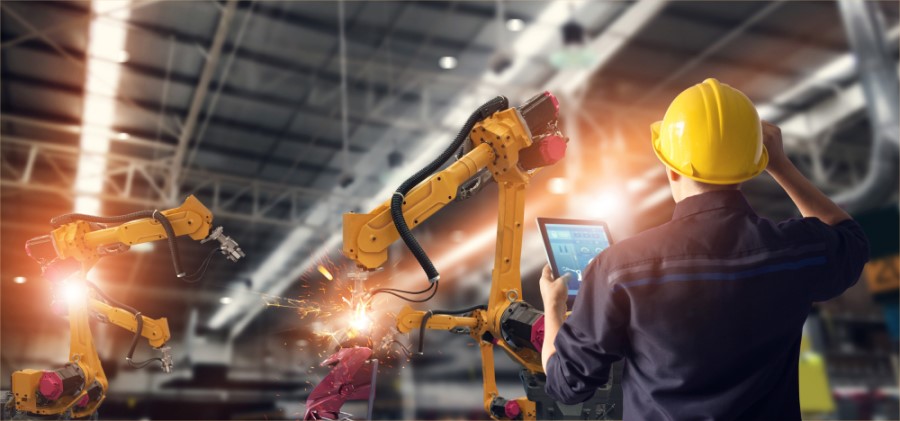Automation: the answer to the productivity conundrum and stagnating pay

This could be a great thing. First, it could make work more meaningful and interesting, for everyone. By moving away from spending time on tasks which could be done by a machine or piece of software, this will free up time to spend on more fulfilling activities which demand the ‘human touch’, using inherently ‘human’ qualities such as emotional intelligence or ingenuity.
Second, but related, this greater use of technology will allow us to increase our productivity – the value of goods and services produced per worker per hour, which has stagnated since the financial crisis.
As a matter of simple arithmetic, this could enable firms to pay higher wages. If work time is now more fruitful, at IPPR we’d argue that workers should keep more of the fruit. Not only is this fair, but those higher wages could spur workers on, improving job satisfaction and retention, as well as attracting a better quality workforce in future, creating a continuous cycle of improvement.
Firms, workers and trade unions need to collaborate to raise pay and productivity together, and government also has a role in that co-ordination. The benefits of new technology should be shared - firms could become more prosperous whilst also paying their workers higher wages, enabled by embracing automating technologies in a considered way.
Further, in a world where technology becomes ever more important to production, it is increasingly important who owns the machines and who benefits from the returns they generate. In practice machines are owned through financial capital - stocks, shares, pension pots, trusts and so on - which are woefully unequally held across the economy. Far fewer such assets are held by women than by men, for example.
Putting two and two together, increasing returns to capital through greater use of technology, combined with the reality of how unequally that capital is held, mean that without policy intervention automation could exacerbate inequality in the UK and worldwide.
To help remedy this, at company level we call for an expansion of employee ownership. Currently just 6 per cent of households are involved in such a scheme, and this number has been falling in recent years. This will help spread out ownership of machines more evenly among the workforce and allow more people to benefit from improvements in technology. It also makes good business sense to give workers a greater stake in the success or failure of their company, and that is likely true at all levels of the organisation.
Automation is here to stay, and it’s up to all of us to ensure that workers are able to reap some of the benefits. Left unmanaged, it will exacerbate existing inequalities, with workers increasingly disillusioned and powerless as the world becomes richer in aggregate, whilst ordinary employees are no better off. Technology is not destiny, and we all have a role in how it shapes our economy and society.
Henry Parkes is senior economist at IPPR’s Centre for Economic Justice, and co-author of The Future is Ours: Women, automation and equality in the digital age published by IPPR in July 2019.






